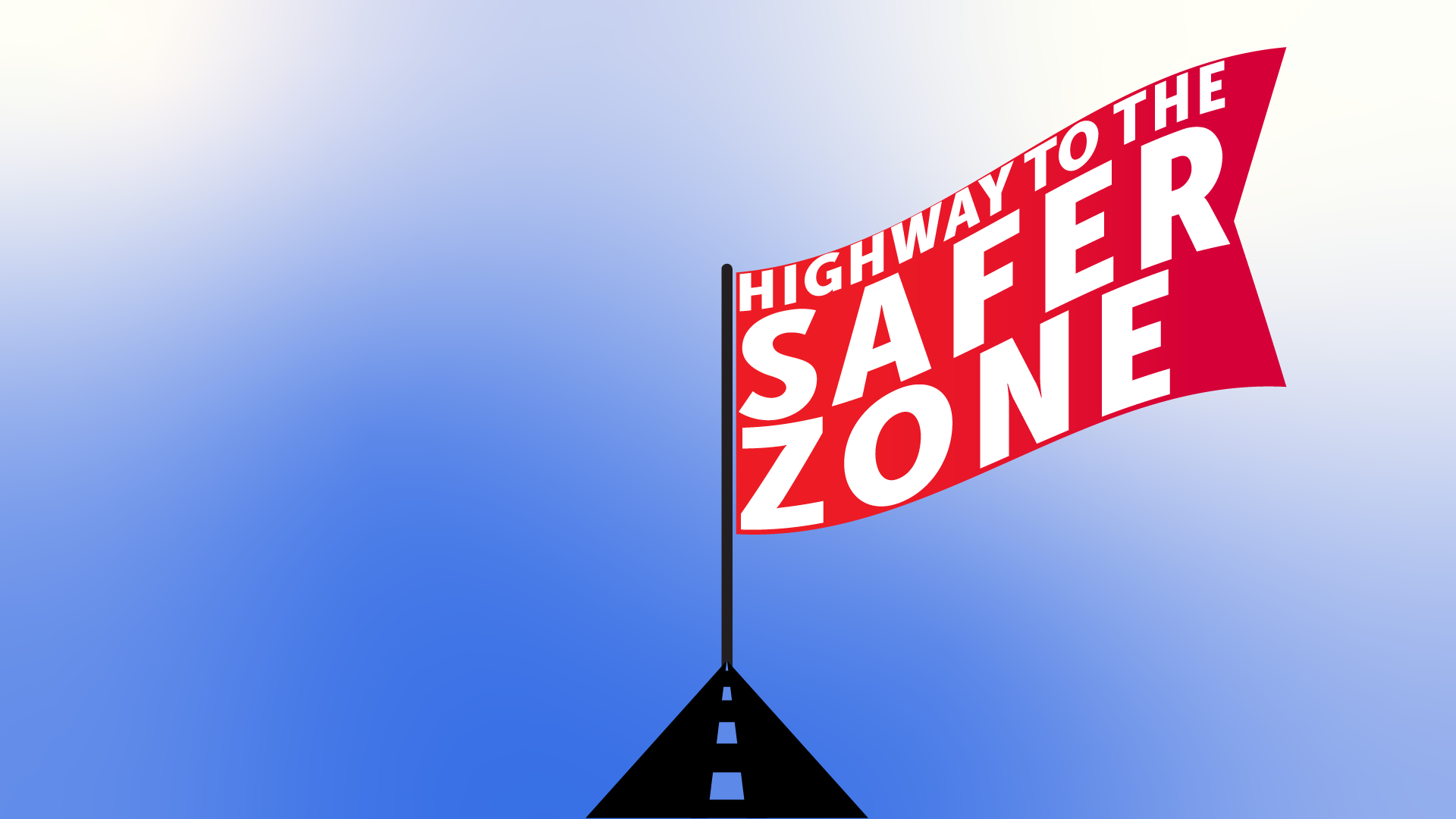Human Rights Films and the platforms dedicated to screening them
In a world where human rights are being violated, hope feels scarce – but that’s not entirely the case. There are voices waiting to be heard and filmmakers sharing these stories. With film festivals across the globe dedicated to human rights films and organisations who champion for the safety of filmmakers, maybe we can make a change.
Written by Esther Smith
The human rights spectrum expands far and wide with stories of unjust happening throughout – while keeping up to date with the news can help us learn, it’s only scratching the surface. Unfortunately, the problems run much deeper than that. I believe we need to be pushed from our comfort zones and to learn from those experiencing it firsthand how human rights are being violated – only then will we understand how to make the world a better place.
This is the overall aim for human rights film festivals across the world: to showcase stories where the rights for humans are broken, and the voices are calling to be heard.
Human Rights Film Festivals
There are many film festivals across the world that hold the core belief that human rights are sacred and worth highlighting. WATCH DOCS is one of the largest human rights film events in the world. Their main festival takes place in Warsaw and tours another 40 cities across Poland, reaching a wide audience to make voices heard. They also host panel debates with human rights defenders, publicists, and politicians – going one step further in bridging the gap between documentaries and making changes in the world.
In 2006, Australia’s first human rights film festival started: Human Rights Arts & Film Festival. Their ongoing aim is to “shift power and gaze, and bring social justice and creative communities closer together in our programming”. Their 2023 edition screened 26 films featuring queer stories, the homeless community, and the South Sudanese Civil War. The festival says all stories are welcome at the festival, “Sometimes those stories are uncomfortable and challenging, sometimes inspiring and hopeful.”
Justice Film Festival, in New York City, started in 2012. Their mission is to “shine a light on social justice and affirm the dignity of all people.” They cover a wide-range of topics of the human rights spectrum, from poverty to racial inequality.
Earlier this year, the longest running human rights film festival, Human Rights Watch, announced it would cease its yearly festival due to financial circumstances. Beginning in 1988 and screened over 500 films each year, Human Rights Watch encouraged their audiences to sit with the uncomfortableness when viewing stories of human rights’ being abused and mistreated throughout the world. They hoped it would “challenge each individual to empathize and demand justice for all people”. The organisation, however, is still going – serving as an important source of information for ongoing human rights issues throughout the world.
Human Rights Filmmakers
Radio Dadaab explores the climate crisis that has led to the arrival of refugees at Dadaab, the world’s second largest refugee camp to over 200,000 people. Fardowsa is a journalist who was born and raised in the camp – her radio show provides education on how climate change has impacted their lives, and what needs to change. In February, the film screened at Colorado Environmental Film Festival: whose aim is to “celebrate the power of film to inspire, educate, and motivate audiences to protect and preserve our environment”.
I’ve spoken with Charlie Johnson, Deputy Director at Environmental Justice Foundation to discuss Radio Dadaab:
“We felt that Fardowsa's story, and the stories of others that we were able to tell through working with her, really exemplified the different ways in which the climate crisis is disproportionately impacting the poorest and most vulnerable people on our planet first and worst.
We drive change by amplifying the voices of those on the frontlines of ecological and climate breakdown, and we knew as soon as we met Fardowsa that her voice was powerful and needed to be heard beyond the camp.
The impact of the climate crisis on human rights is enormous and demands immediate and clear communication to the public and decision-makers. Currently, the most marginalized and vulnerable groups are bearing the brunt of its consequences.
Human rights film festivals play an important role in engaging new audiences and extending the conversation beyond the usual circles of NGOs and academics.
Voices like Fardowsa's need to be heard by the global community for people and policymakers to grasp the human toll of the climate emergency. By telling the stories of the people behind the numbers, we hope to drive those in positions of influence to implement the changes necessary to prevent the most catastrophic outcomes of inaction.”
Radio Dadaab will be screening at Brighton Rocks International Film Festival (UK, 30th June) and Woods Hole Film Festival (USA, 29th July and 4th–11th August virtually).
In many countries, women’s rights and choices are restricted. Abortion is one of these restrictions, with only 67 countries legalising abortion as of 2023. In countries where abortion is illegal, these laws make it difficult for women to access safe terminations. Uma Mulher Comum (A Common Woman) shows what this scenario may look like for some people. Due to the lack of family planning services in Brazil, Scarleth – a married woman and mother of three children — travels 1,400 miles from Brazil to Argentina to have an abortion.
I reached out to director Debora Diniz to discuss Uma Mulher Comum (A Common Woman):
“Scarleth's story is about the common woman who has a common abortion in Brazil. Why do I say an ordinary woman and an ordinary abortion? Because it's the ordinary woman, like my mother, my sister, or myself, who has an abortion in unsafe and risky conditions under the criminal law in Brazil.
Sexual and reproductive rights are human rights. However, the two fields of rights advocacy - human rights and feminism - do not always talk to each other.
Human rights festivals are an important space to open up the conversation and facilitate dialogue between communities of people and artists working on human rights. Abortion rights should not be set aside by human rights activists as a sensitive or difficult issue to the urgency of the human rights agenda.
We need stories about how real people survive in restrictive and authoritarian environments. Stories connect people and communities. We need filmmakers committed to listening and showing how women and others navigate to protect their rights and bodily autonomy when abortion is needed.
The rise of authoritarian and extremist powers worldwide is accompanied by the persecution of women and gender-diverse people.”
Organisations For Filmmakers
The International Resource for Impact and Storytelling (IRIS) and The Rory Peck Trust published a study in 2022, where they interviewed over 120 filmmakers regarding their work in areas of unrest. They found that many filmmakers didn’t see themselves at risk and even downplayed risks, which might’ve put them in danger. The study highlights the risk that filmmakers and journalists have by saying, “In many places the camera is seen as a weapon and visual storytellers and journalists face a real risk of retaliation from those who feel threatened by the stories they tell.”
The study concludes that more research and protection should be taken for the filmmakers’ wellbeing and safety. They also found that “very few funders are proactive about raising safety issues and funding safety resources” unless they had a large production company behind them – this heightens the risk levels as filmmakers may not be able to pay any legal fees.
There are foundations and trusts that aim to provide filmmakers and journalists financial security for their work. The Bertha Foundation is a multi-use foundation which caters to activists, storytellers, and lawyers – covering a large area of those shedding light on ongoing issues in the world. In 2013, the team working on Virunga were awarded a Bertha/Doc Society Journalism Film Grant – this allowed them undertake training for hostile environments and to access legal advice. Because of this fund, the team were able to protect themselves from various factors that could’ve caused them harm – they were able to be safe.
If you’re anything like me, you might be feeling lost and angry after seeing humanity’s ugly side. However, I find myself agreeing with Human Rights Arts & Film Festival’s answer on stopping history from continually repeating: “We resist fear and hate. And that we overwhelm it with empathy and compassion and respect and protection of human rights […] instead of feeling powerless at the injustice of the world, we can empower ourselves with the knowledge and tools to fight injustice”.
All sides of the human rights spectrum are suffering and from the stories above, it’s clear the world needs change. The human rights film festivals and the foundations assisting filmmakers are helping voices be heard, stories to be showcased, and as a result, hoping lives will change.





